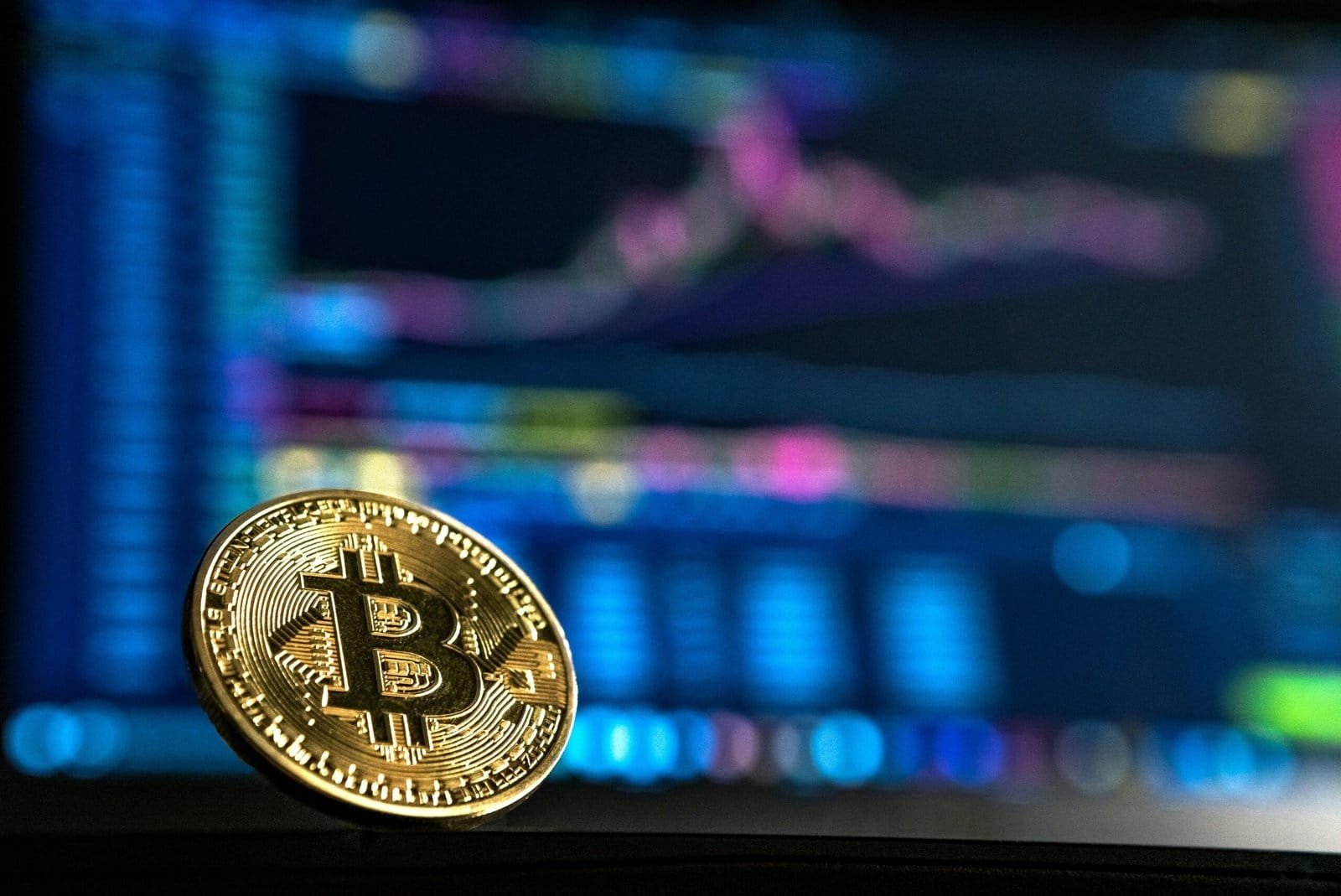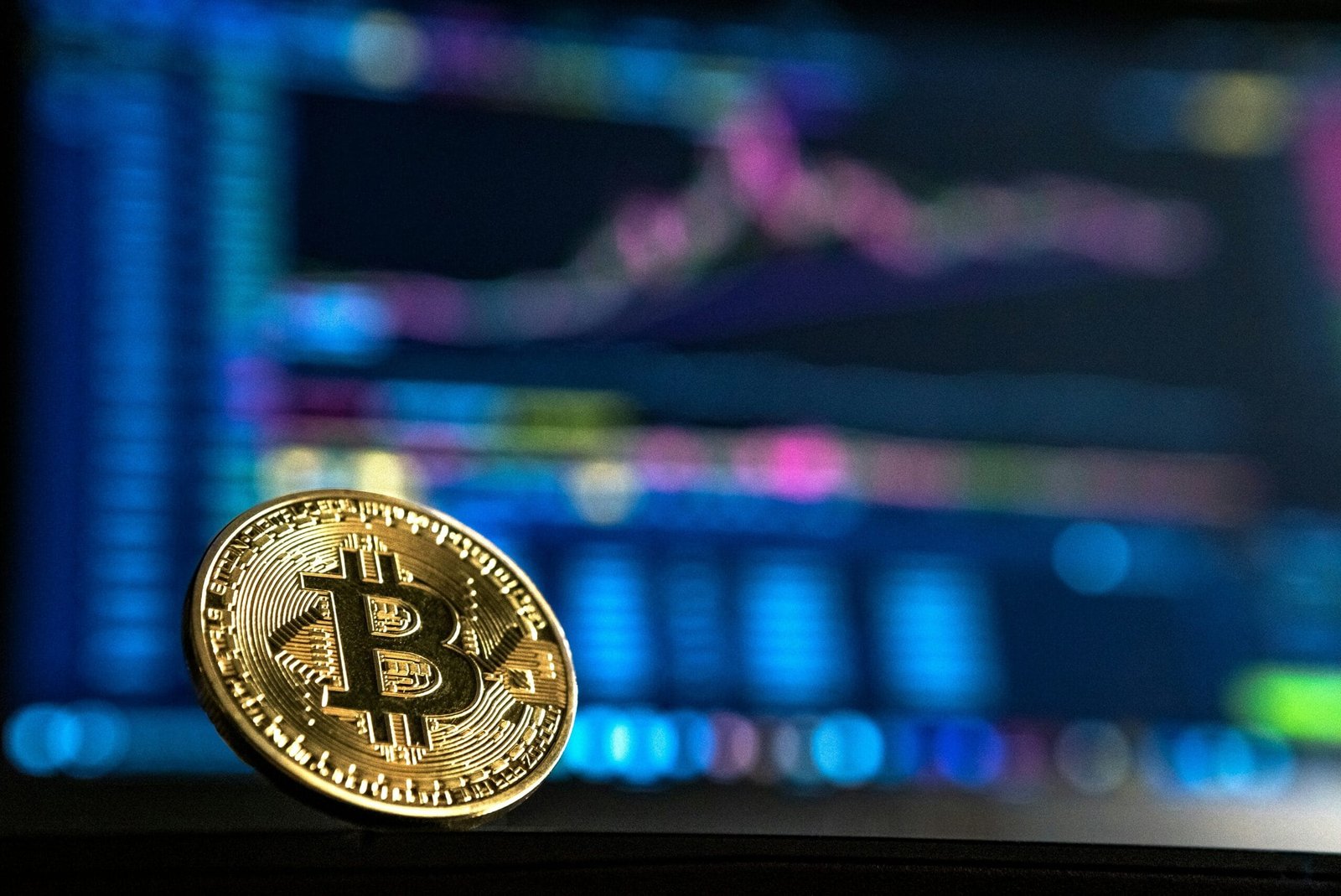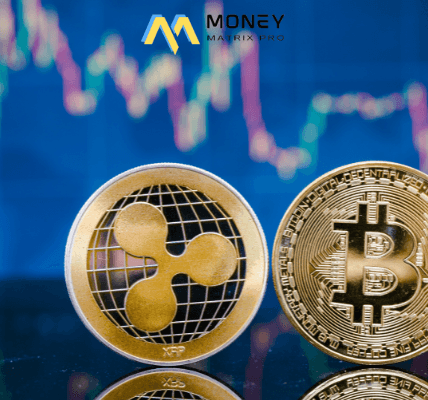
Understanding Altcoins: A Beginner’s Guide
Altcoins, a term derived from “alternative coins,” represent any cryptocurrency other than Bitcoin. While Bitcoin was the first successful decentralized digital currency, the emergence of numerous altcoins has since transformed the cryptocurrency market into a diverse ecosystem. These altcoins vary significantly in purpose, technology, and underlying blockchain infrastructure, expanding opportunities for investors and users alike.
One of the primary distinctions between altcoins and Bitcoin is the functionality they offer. Many altcoins are designed with specific use cases in mind, such as facilitating transactions within a certain ecosystem (utility tokens), providing rights to profits and assets (security tokens), or maintaining a stable value (stablecoins). Utility tokens, like Ethereum’s Ether, enable users to access services or applications built on their respective platforms. Security tokens, on the other hand, represent ownership in an asset, such as shares in a company, complying with regulatory guidelines. Lastly, stablecoins are pegged to traditional assets, like fiat currencies, ensuring minimal price volatility and thereby enhancing their usability in trading and everyday transactions.
Understanding the different categories of altcoins is crucial for anyone looking to venture into cryptocurrency trading. Each type of altcoin can offer unique benefits and risks, highlighting the importance of thorough research and due diligence before investing. Factors such as market capitalization, project viability, use cases, and community support should be considered when evaluating altcoins. As the cryptocurrency landscape continues to evolve, altcoins will play a vital role in diversifying portfolios and meeting the increasing demands of users worldwide. To navigate this complex market effectively, beginners must develop a solid foundation in the distinct characteristics that define various altcoins.
Key Factors to Consider When Choosing Altcoins
When venturing into the realm of cryptocurrency trading, particularly for beginners, selecting the right altcoins is paramount. The process involves a careful evaluation of several key factors that can significantly influence the potential success of an investment. This guide provides a framework for making informed decisions.
First, market capitalization is a critical criterion. It serves as an indicator of a cryptocurrency’s overall value and stability. Typically, altcoins with higher market caps are regarded as less risky compared to those with lower capitalization. Beginners should be cautious and might consider focusing on medium to large-cap altcoins that exhibit consistent performance over time.
Next, it is essential to examine the project team behind the altcoin. A strong and experienced team inspires confidence in the project’s potential for success. Investigating their backgrounds, previous projects, and overall reputation within the cryptocurrency community can provide valuable insight.
The underlying technology and use case of the altcoin are also vital components. Different altcoins may serve various purposes, such as facilitating smart contracts, enabling decentralized finance (DeFi) applications, or offering payment solutions. Evaluating how the altcoin stands out in the overcrowded market can indicate its future trajectory and relevance.
Community support plays a pivotal role in the success of any cryptocurrency. An active and passionate community often leads to greater adoption and sustained interest. Following social media channels, forums, and community discussions can reveal vital information about sentiment and potential growth.
Lastly, trading volume offers insight into the altcoin’s liquidity. High trading volumes generally suggest a healthy interest in the cryptocurrency, making it easier to buy and sell without significant price fluctuations. For beginners, understanding these factors can significantly enhance decision-making, leading to more judicious cryptocurrency trading choices.
The Top 5 Altcoins for Beginners in 2024
As the cryptocurrency market continues to evolve, identifying promising altcoins remains crucial for new investors aiming to navigate this dynamic landscape. Here, we present the top five altcoins suited for beginners in 2024, each chosen for its stability, utility, and potential for growth.
The first altcoin on our list is Ethereum (ETH). Recognized as a pioneer in smart contract functionality, Ethereum’s robust network supports a plethora of decentralized applications. Given its significant market capitalization and widespread adoption, Ethereum represents a strong entry point for beginners, offering the opportunity to participate in the broader decentralized finance (DeFi) ecosystem.
Next, we have Cardano (ADA). This blockchain platform is designed to facilitate secure and scalable transactions through a proof-of-stake consensus mechanism. Cardano’s emphasis on sustainability and academic rigor in its development process makes it a user-friendly option for newcomers. Its growing network and partnerships encourage a positive outlook for future trading.
Third on the list is Polkadot (DOT). With its unique ability to connect different blockchains, enabling interoperability, Polkadot’s architecture presents a valuable asset in the evolving cryptocurrency market. Its focus on scalability and innovation provides a sound rationale for beginners to consider entering the space through this altcoin.
Ripple (XRP) is another worthwhile mention. Designed to facilitate cross-border payments swiftly and at low costs, Ripple’s partnerships with financial institutions enhance its credibility. As a veteran in the cryptocurrency market, it offers a reassuring option for new investors, backed by established use cases in the financial sector.
Lastly, Chainlink (LINK), a decentralized oracle network, stands out due to its capability to bridge the gap between blockchain technology and real-world data. Chainlink’s growing adoption across various blockchains underscores its utility and potential for future growth, making it a prudent choice for anyone starting their cryptocurrency journey.
Market Trends Influencing Altcoin Performance
The cryptocurrency market is continually evolving, influenced by various trends that can significantly affect altcoin performance. One of the foremost trends is the advancement in blockchain technology. Innovations in scalability, interoperability, and security are pivotal as they enhance the functionality and appeal of different altcoins. The adoption of layer-2 solutions, for example, has resulted in reduced transaction fees and faster processing times, making these altcoins more attractive to investors and traders alike. As new and improved technologies emerge, they are likely to boost the performance of altcoins that leverage these advancements.
Another crucial factor is the evolving landscape of regulation surrounding cryptocurrencies. Governments across the globe are increasingly implementing frameworks that can either positively or negatively influence altcoin trading. For instance, the establishment of clearer regulations may foster a safer trading environment that encourages participation from more institutional investors. However, stringent regulations could impose limitations on trading practices, which may deter potential investors. Understanding the regulatory environment is essential for beginners seeking to navigate altcoin investments and trading effectively.
Moreover, broader economic factors, such as inflation rates and monetary policy, have a significant impact on cryptocurrency valuation. In times of economic uncertainty, investors often turn to alternative assets, which can lead to increased interest in altcoins. For beginners, it is essential to consider how these market trends and economic conditions might shape the future landscape for trading altcoins. By staying informed through market analysis and research, traders can identify potential opportunities or risks related to various altcoins, aiding them in making informed decisions moving forward.
Predictions for Altcoins in 2025
As we examine the future of altcoins in 2025, it is essential to acknowledge the dynamic nature of the cryptocurrency market, characterized by rapid advancements and shifting trends. Based on current data and insights from industry experts, several predictions emerge that can help investors navigate this evolving landscape.
First, the rise of decentralized finance (DeFi) is expected to continue influencing the altcoin market significantly. As more users seek alternatives to traditional financial systems, altcoins that facilitate lending, borrowing, and trading without intermediaries could see substantial growth. Cryptocurrencies that integrate DeFi functionalities will likely enjoy increased adoption, thus impacting their market performance positively. Furthermore, technological advancements in blockchain scalability, interoperability, and security will play a crucial role in determining which altcoins thrive.
Additionally, the implementation of regulatory frameworks may shift market dynamics. Governments around the world are increasingly looking to regulate the cryptocurrency space, which could create both opportunities and challenges for altcoins. Those that comply with regulations and adapt to legal standards may gain wider acceptance, while others not in compliance may face challenges that hinder their growth.
Moreover, as the impact of environmental concerns intensifies, altcoins that focus on sustainability and energy-efficient processes are likely to attract attention. Cryptocurrencies employing proof-of-stake mechanisms or similar technologies are expected to outperform traditional proof-of-work coins in the coming years as societal values shift towards environmentally friendly practices.
In conclusion, the trajectory of altcoins in 2025 will be shaped by technological innovations, regulatory changes, and evolving consumer preferences. Investors should remain vigilant and informed, as the decisions made today will influence their cryptocurrency trading strategies in the near future.
Risks Associated with Altcoin Investing
Investing in altcoins presents numerous opportunities, but it is essential to be aware of the risks associated with this emerging market. One of the primary concerns for beginners is market volatility. The value of altcoins can experience significant fluctuations within short periods. This volatility can be attributed to various factors, including market sentiment, trading volume, and broader market trends. As a new investor, one must be prepared to face potential losses due to rapid price swings, which can be daunting for those unfamiliar with the cryptocurrency space.
Another critical aspect to consider is regulatory issues. The legal status of cryptocurrencies varies from one country to another, and regulations can change unexpectedly. Governments may implement restrictions or bans that can directly impact altcoin trading. Such regulatory uncertainties can create challenges for investors, making it vital for one to stay informed about the evolving landscape of cryptocurrency regulations. Understanding the legal environment can help mitigate unforeseen risks and ensure a more secure investment approach.
Additionally, the potential for technological obsolescence is a concern for altcoin investors. The rapidly evolving nature of blockchain technology means that new and more efficient solutions can emerge, rendering existing altcoins less competitive. As new projects are developed, some altcoins may lose their relevance and market share, potentially leading to significant losses for investors. Therefore, it is crucial for beginners to conduct thorough research and evaluate the underlying technology and use cases of altcoins before committing funds.
Being aware of market volatility, regulatory challenges, and technological advances can aid investors in making informed decisions. It is essential to approach altcoin trading with caution and an understanding of the risks involved, which can help create a balanced investment strategy.
How to Start Investing in Altcoins
Investing in altcoins can seem overwhelming for beginners, but following a streamlined approach can simplify the process. The first step is selecting a reputable cryptocurrency exchange, which serves as a platform for buying, trading, and selling digital assets. Popular exchanges such as Binance, Coinbase, and Kraken offer a user-friendly interface that caters to newcomers. Consider factors such as the range of available cryptocurrencies, trading fees, security measures, and customer support when choosing an exchange.
Once you have identified a suitable exchange, the next step is to set up an account. This process typically requires providing personal information and completing identity verification procedures to comply with financial regulations. After successfully creating your account, you can fund it using a bank transfer, credit card, or other accepted payment methods. Familiarize yourself with the different order types—market orders, limit orders, and stop orders—to determine which aligns with your trading strategy.
After funding your account, proceed to make your first altcoin purchase. It is advisable to start with well-established altcoins that have demonstrated a solid track record, such as Ethereum or Litecoin, before exploring lesser-known options. Once you have acquired your chosen cryptocurrencies, consider transferring them to a personal wallet for enhanced security. Wallets come in various forms, including hardware wallets, software wallets, and paper wallets, each offering different levels of security and accessibility.
When trading cryptocurrencies, it is important to practice safe trading habits. Be vigilant about the security of your investments, enabling two-factor authentication on your exchange account and wallet. Stay informed on market trends and conduct thorough research before making investment decisions. Armed with this foundational knowledge, beginners can embark on their cryptocurrency trading journey with confidence and prudence.
Real-Life Case Studies: Successful Altcoin Investments
In the ever-evolving landscape of cryptocurrency, various altcoins have emerged, illustrating the potential for substantial gains alongside the inherent risks. Several case studies highlight successful investments that not only yielded profits but also provided insightful lessons for beginners navigating the world of altcoin trading.
One notable example is the rise of Ethereum (ETH). Initially launched in 2015, Ethereum introduced the concept of smart contracts, allowing developers to create decentralized applications (dApps) on its blockchain. Early investors who recognized the platform’s potential observed rapid price appreciation, particularly after the DeFi (Decentralized Finance) boom in 2020. By understanding the technological advancements and utility that Ethereum offered, investors managed to turn modest investments into substantial returns. This case emphasizes the importance of thorough research into an altcoin’s fundamentals and utility before committing funds.
Another compelling case involves Chainlink (LINK), a decentralized oracle network that gained traction for its ability to connect off-chain data with blockchain technologies. Investors who spotted the rising demand for accurate and reliable data feeds reaped the rewards, as the token’s value surged significantly from its initial trading price. Chainlink’s partnership with various blockchain projects underscored the significance of strategic alliances and platforms that solve real-world problems. This illustrates that investment strategies centered around market demand and technological relevance can lead to successful altcoin trading experiences.
Additionally, the surge of Binance Coin (BNB) is noteworthy. Originally created as a utility token for discounted trading fees on the Binance exchange, BNB evolved into a multifaceted asset. Its growth trajectory, driven by the expansion of the Binance ecosystem, showcases the value of recognizing an altcoin’s evolving utility and its institutional backing. Investors who stayed informed about the developments within the Binance Exchange and capitalized on the momentum enjoyed remarkable gains.
Through these case studies, it becomes evident that successful altcoin investments often result from diligent research, market awareness, and strategic positioning. Beginners in cryptocurrency trading can glean valuable insights from these players, which can serve as a foundation for their investment strategies moving forward.
Conclusion: Embracing the Future of Altcoins
As the cryptocurrency landscape continues to evolve, the potential for altcoins presents both exciting opportunities and challenges for novice investors. The exploration of various altcoins emphasizes the importance of conducting thorough research to understand their underlying technologies and use cases. This knowledge is essential for making informed decisions in the highly volatile world of crypto trading.
Staying informed about market trends is crucial for anyone looking to navigate the realm of altcoin investments. As new projects emerge and established tokens fluctuate in value, understanding the broader context of each asset will better equip beginners to anticipate changes in the marketplace. Resources such as dedicated cryptocurrency news platforms, market analysis reports, and community forums can provide valuable insights that may enhance trading strategies.
Furthermore, it is imperative to approach the altcoin market with a sense of caution. The allure of rapid gains can often lead to impulsive decisions, but understanding the risks associated with trading is vital. Emphasizing diversified investment strategies and establishing clear risk management techniques can significantly improve a trader’s chances of success while mitigating potential losses. Alternative currencies can be rewarding, but they also come with inherent risks that must not be overlooked.
In conclusion, while the journey into the world of altcoins may seem daunting, embracing the right mindset of research, awareness, and caution can lead to promising opportunities. As the market continues to mature, those who are proactive in educating themselves and adapting to changes will likely find success among the evolving altcoin landscape. Investing wisely and remaining patient will ultimately contribute to a more fruitful trading experience.




